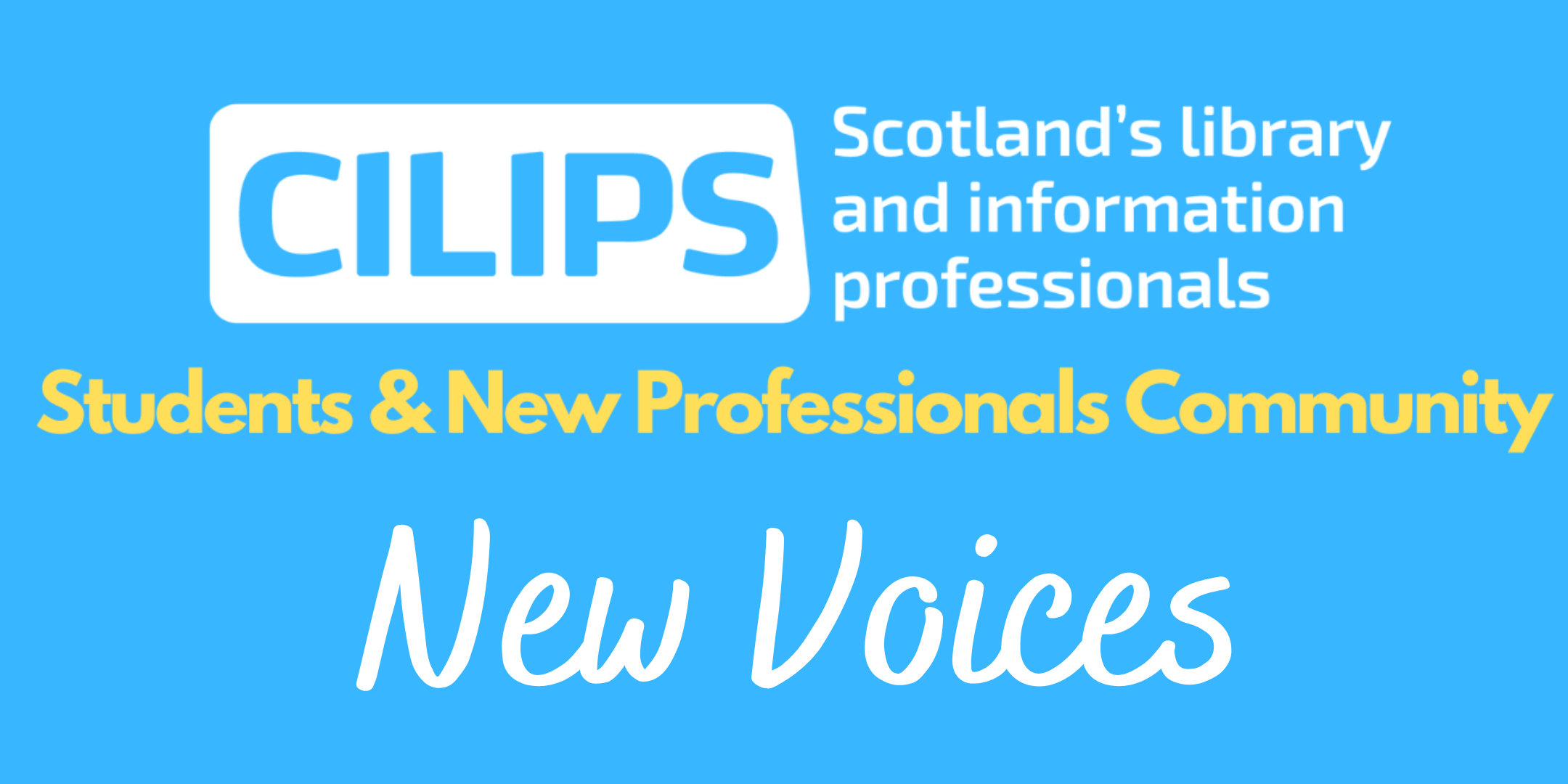New Voices RGU Student Series 2024 – Mary McShane
Category: Blog, New Voices, RGU Student Series 2024

In the 2024 Student Series for the New Voices blog, CILIPS Students & New Professionals Community will be sharing the views of Robert Gordon University students from the MSc in Information and Library Studies.
With special thanks to Dr Konstantina Martzoukou, Teaching Excellence Fellow and Associate Professor, for organising these thought-provoking contributions.
Mary McShane is a library assistant at the de Chastelain library at the Dundalk Institute of technology in Ireland.
The role of librarians in supporting information literacy skills development for using generative artificial intelligence tools in higher education.
Information literacy skills enable third level students to think critically and make fair judgements about information they find and use in order to develop informed views (Cilip 2018). The emergence of generative AI tools has changed the information landscape with its ability to create new content such as text, images, videos and audio (Google AI 2023). The challenge for the information professional is to guide the student in this new terrain, giving them skills to effectively search, evaluate and use the information found with generative AI tools. Despite its pitfalls and infancy, generative AI technology is going to improve so academic librarians in higher education need to develop and offer adequate information literacy skills to enable students to navigate this change in information retrieval.
There are some challenges to this endeavour. For example, even though generative AI tools create human like responses, they don’t actually know anything and are merely predicting a sequence of words (Rosengarten and Shelbey 2023) therefore the information they produce is not always accurate. In fact, experts gleaned that this technology gave inaccurate information mixed with correct information about twenty per cent of the time (Houston and Corrado 2023). Humans are currently giving feedback to help sharpen generative AI responses (Rosengarten and Shelbey 2023) and we can see this with Open AI’s ChatGPT model which is currently being offered for free to allow manufacturers to monitor user interaction. Despite its infancy, it’s important for information professionals to encourage students to use these tools to get used to their processes and language as they will likely be collaborating with them in their professional and personal lives.
ChatGPT has heavily influenced third level education with its ability to create well-written essays, summarise papers and answer questions well enough to pass exams. This is challenging academic librarians to find a way to help students manage this output. Despite ChatGPT’s seemingly endless supply of knowledge and mastery of structure, librarians need to make students aware of hidden threats in this technology, such as its potential to produce spam, ransomware, and other harmful outputs (Dergaa et al. 2023). In an era of cyber-attacks on universities, information professionals need to access more research on the threats and limitations of these tools so that students do not find themselves in the embarrassing situation of being the source of a virus. ChatGPT is still lacking in its scholarly writing capabilities as was clear from an exam and project given to it to complete by George Washington University where it performed poorly (Dergaa et al. 2023). This may encourage lecturers to give assignments that demand critical thinking and problem-solving skills beyond the capabilities of AI (Dergaa et al. 2023). Consequently, academic librarians must evolve with the changing demands of the lecturers in order to adequately serve students in their information retrieval needs.
It’s clear that libraries need to change as developers are improving these tools and big companies such as Google, Meta and Microsoft have already created new models such as Google Bard and Microsoft Bing chat (Techopedia 2023). As they are becoming part of everyday research, academic libraries must tailor their information literacy education in generative AI tools to include areas such as plagiarism, correct referencing, copyright and fact checking. Third level libraries such the University of Queensland have already come up with detailed information literacy guidelines for students around the use of generative AI (University of Queensland. Library 2023).
It would be prudent for academic librarians to heavily focus on guiding students in the use of generative AI tools that will become increasingly entrenched in the academic landscape.
References
CILIP, 2018. What is information literacy? [online]. UK: CILIP: The library and information association. Available from: https://www.cilip.org.uk/news/421972/What-is-information-literacy.htm [Accessed 24 November 2023].
DERGAA, I. et al., 2023. From human writing to artificial intelligence generated text: examining the prospects and potential threats of ChatGPT in academic writing. Biology of Sport, 40(2), pp. 615–622.
GOOGLE AI, 2023. Generative AI [online]. Google. Available from: https://ai.google/discover/generativeai. [Accessed 24 November 2023].
HOUSTON, A.B. and CORRADO, E.M., 2023. Embracing ChatGPT: Implications of Emergent Language Models for Academia and Libraries. Technical Services Quarterly, 40(2), pp. 76–91.
Mairn. Chad and ROSENGARTEN, SHELBEY, 2023. Helping Students Navigate Research With AI Tools. Computers in Libraries, 43(7), pp. 22–26.
TECHOPEDIA, 2023. Who are the Competitors of ChatGPT? 10 Biggest Market Players. [online]. Panama: Techopedia. Available from: https://www.techopedia.com/who-are-the-competitors-of-chatgpt. [Accessed 9 November 2023].
THE UNIVERSITY OF QUEENSLAND, 2023. Library: ChatGBT or other Generative AI in your assignments. [online]. Queensland, Australia: University of Queensland. Available from https://guides.library.uq.edu.au/referencing/chatgpt-and-generative-ai-tools/overview [Accessed 27 October 2023].